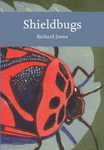![The Mysterious World of the Human Genome The Mysterious World of the Human Genome]()
Click to have a closer look
About this book
Customer reviews
Biography
Related titles
About this book
Your genome defines you at the most profound level. That same genome is present in every one of the approximately 100,000 billion cells that make you who you are as an individual member of the human species. An important ingredient of the genome, and its essential nature, is memory – the memory of the entirety of every individual human's genetic inheritance. But how, exactly, does it perform this remarkable feat of memory? We know that this wonder chemical we call DNA works like a code. But how could any code recall the complex instructions that go into the making of cells and tissues and organs, and once made, allow them to function as a co-ordinated whole that comprises the human being?
All of this might be encompassed in a minuscule cluster of chemicals, including, but not exclusive to, the master molecule we call DNA. This chemical code somehow records the genetic instructions for 'making' us. Built into that code must also be the potential for individual liberty of thought and inventiveness, enabling every human artistic, mathematical and scientific creativity. It gives rise to what each of us thinks innately as our individual 'self'. Somehow that same construction of 'self' made possible the genius of Mozart, Picasso, Newton and Einstein. It is little wonder that we look at the repository of such potential with awe. And unsurprisingly we hope to uncover the mystery that lies at the very core of our being.
In this groundbreaking new book, Frank Ryan leads us into a series of remarkable revelations about our human history, into the very distant past of our ancestor's lives and their prehistoric exploration of our beautiful planet, revealing the true secrets to the human genome which makes each of us who we are. Only recently have we come to understand the human genome in sufficient depth and subtlety to be able to put together its marvellous story – and to discover that there is rather more to it than DNA alone.
Customer Reviews
Biography
Dr Frank Ryan is a consultant physician based in Sheffield, and an honorary Research Fellow in the Department of Animal and Plant Sciences at the University of Sheffield. He is also an international best-selling writer. His book, Tuberculosis: The Greatest Story Never Told, was a New York Times Book of the Year while Darwin's Blind Spot was the 'Amazon Featured Book' recommended by Charlie Munger at the 2003 Berkshire Hathaway annual meeting. He pioneered the evolutionary concepts of 'viral symbiosis' and 'genomic creativity' and has contributed to the modern understanding of the evolution of the human genome. He is a Fellow of The Royal College of Physicians, the Royal Society of Medicine and the Linnean Society of London.



































